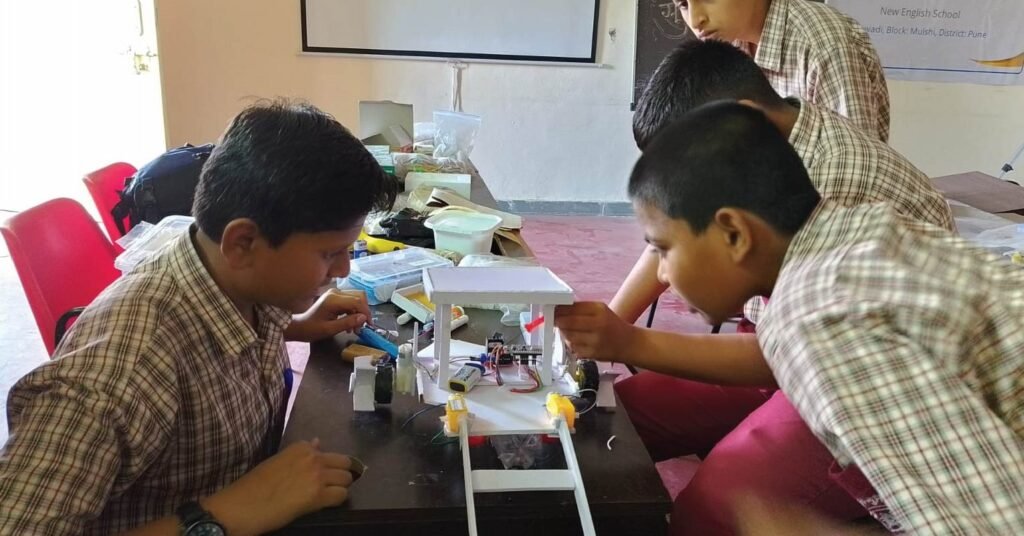In an era defined by technological innovation and rapid advancements, the importance of STEM (Science, Technology, Engineering, and Mathematics) education cannot be overstated. As we navigate the complexities of the 21st century, the need for a skilled workforce equipped to tackle emerging challenges becomes increasingly apparent. Corporate Social Responsibility (CSR) initiatives focused on STEM education offer a strategic approach to addressing this need while creating a positive impact on society. This article explores the rationale behind focusing CSR efforts in STEM education and the transformative potential it holds in shaping a future-ready workforce.
1. Understanding the Importance of STEM Education
STEM education forms the backbone of technological progress and innovation. From developing cutting-edge technologies to addressing global challenges, STEM disciplines play a pivotal role in driving societal progress. By cultivating skills such as critical thinking, problem-solving, and collaboration, STEM education prepares individuals to navigate the complexities of the modern world and contribute meaningfully to society.
2. Meeting the Demands of the Future Workforce
In an increasingly digitalized and automated world, the demand for STEM-skilled professionals continues to rise. From artificial intelligence to robotics, emerging technologies are reshaping industries and transforming the nature of work. Focusing CSR efforts in STEM education ensures that individuals are equipped with the skills and knowledge needed to thrive in a technology-driven economy, thereby addressing the growing demand for STEM talent.
2.1 Navigating the Era of AI and Automation
As AI and automation redefine traditional job roles, there is a pressing need for individuals with expertise in STEM fields. By investing in STEM education, corporations can help prepare individuals to adapt to the changing nature of work and leverage technology to drive innovation and productivity. Equipping individuals with programming and technological skills enables them to harness the power of AI and automation, rather than being displaced by it.
3. Empowering Students with Hands-On Learning
One of the key components of STEM education is hands-on learning. Through initiatives such as those offered by the India STEM Foundation, students are provided with experiential learning opportunities that foster creativity, curiosity, and problem-solving skills. By supporting STEM programs, corporations can empower students to explore their interests, develop practical skills, and gain exposure to real-world applications of STEM concepts.
3.1 Creating Solutions for Tomorrow
Hands-on STEM learning enables students to develop the critical thinking and innovation skills needed to address complex challenges facing society. Whether it’s designing sustainable solutions for environmental conservation or developing technologies to improve healthcare access, STEM-educated individuals are well-positioned to drive positive change and create solutions for a better tomorrow.
4. Building a Sustainable Future
Investing in STEM education is not only about preparing individuals for careers; it’s about building a sustainable future for generations to come. By nurturing a pipeline of STEM talent, corporations contribute to the long-term prosperity and resilience of industries and communities. Moreover, promoting diversity and inclusion in STEM education ensures that talent is cultivated from all segments of society, fostering innovation and creativity.
5. Leveraging Corporate Resources for Social Impact
Corporate CSR initiatives provide a unique opportunity to leverage resources and expertise for social impact. By aligning CSR efforts with STEM education, corporations can make a meaningful contribution to addressing societal challenges while simultaneously investing in their future workforce. Whether through financial support, employee volunteering, or strategic partnerships, corporations have the power to catalyze positive change in STEM education.
Shaping the Future Through STEM Education
In conclusion, focusing CSR efforts in STEM education is not just a philanthropic endeavor; it’s a strategic investment in the future. By equipping individuals with the skills and knowledge needed to thrive in a technology-driven world, corporations play a critical role in shaping a future-ready workforce and driving innovation and progress. As we navigate the complexities of the 21st century, investing in STEM education emerges as a powerful tool for creating positive societal impact and building a sustainable future for generations to come.




